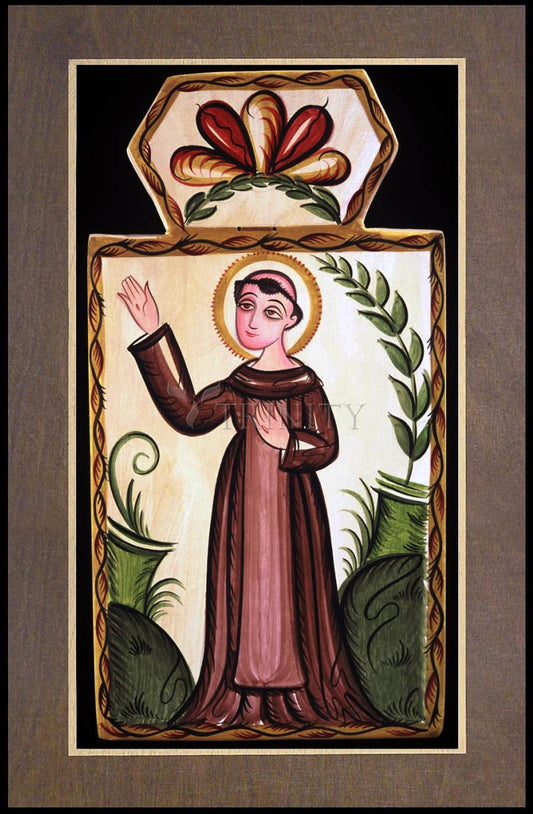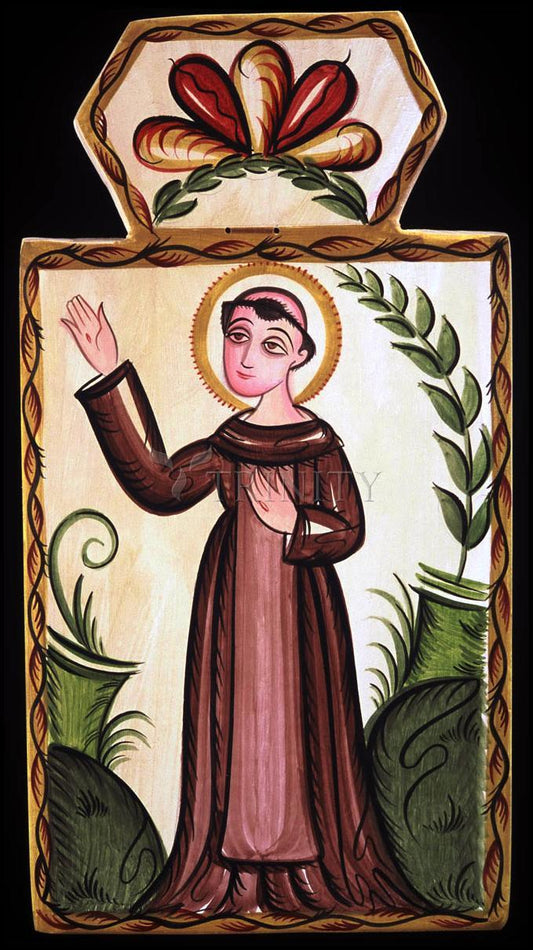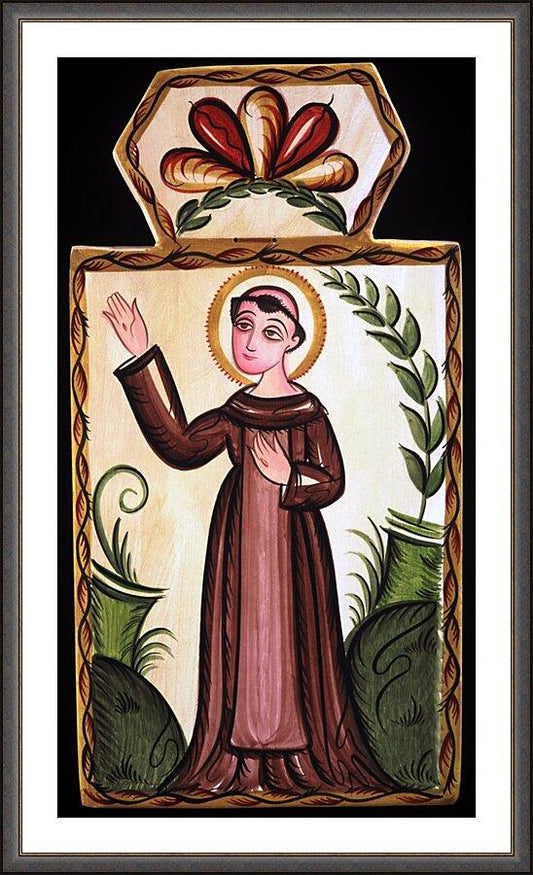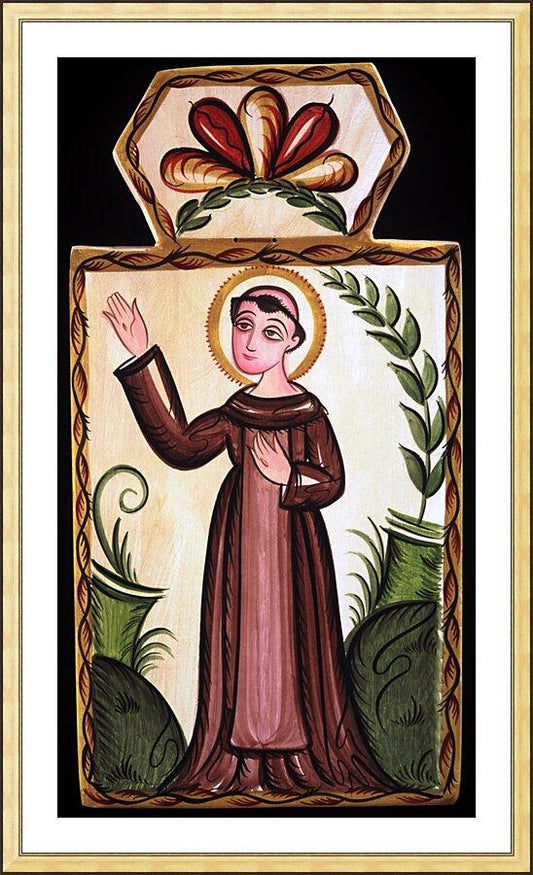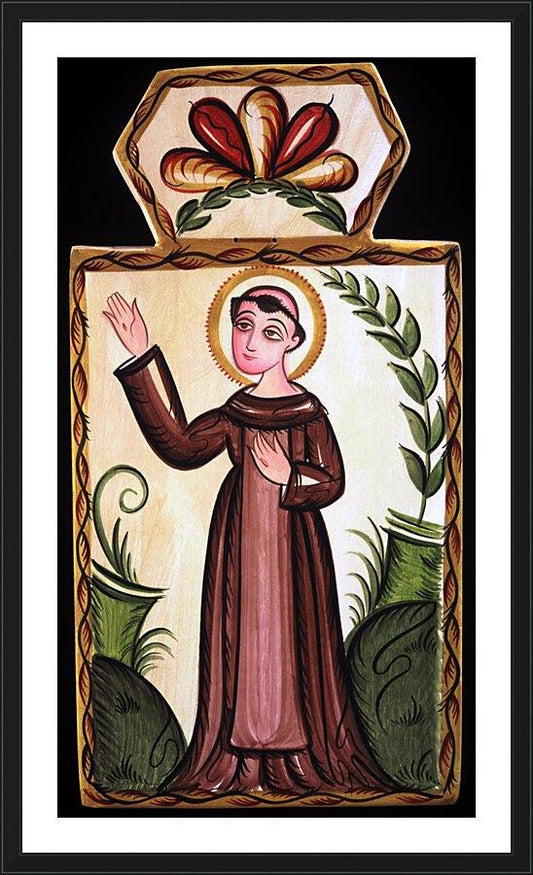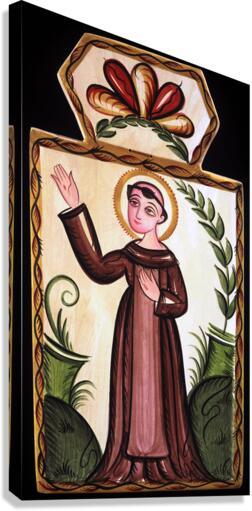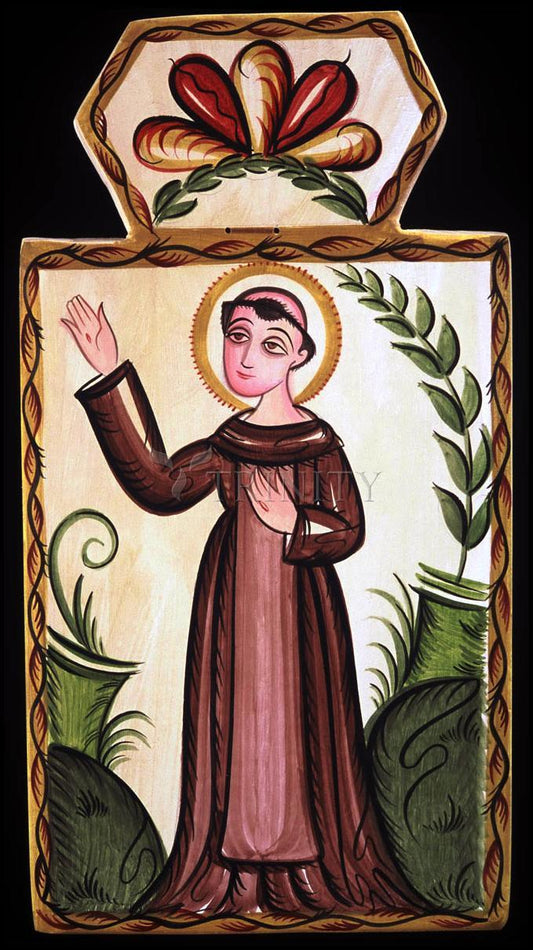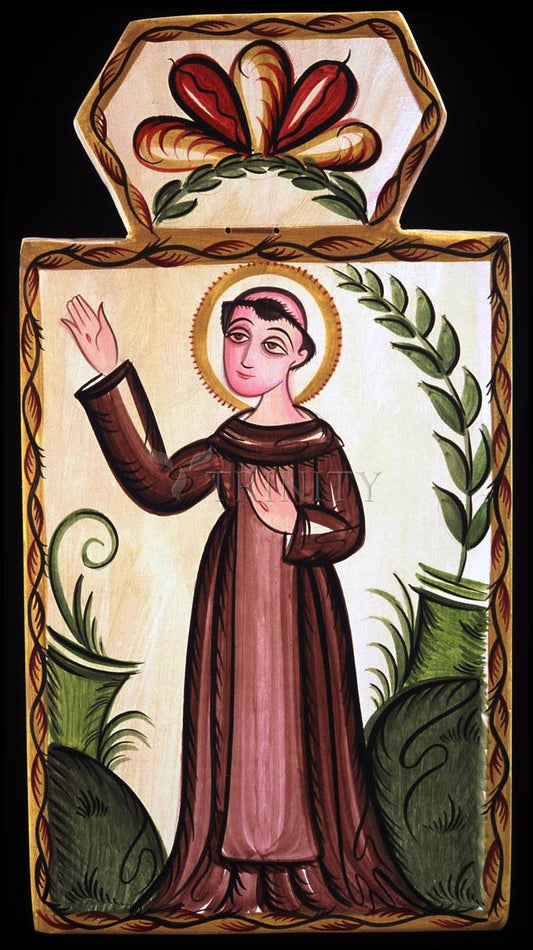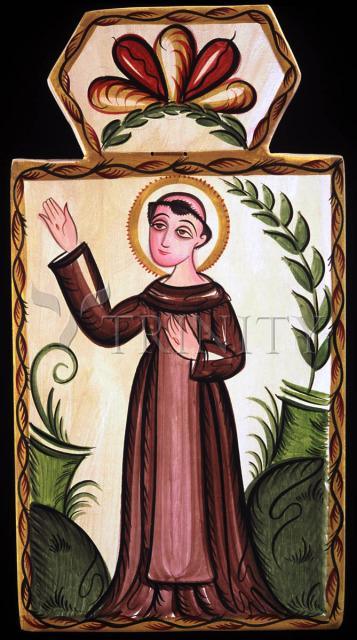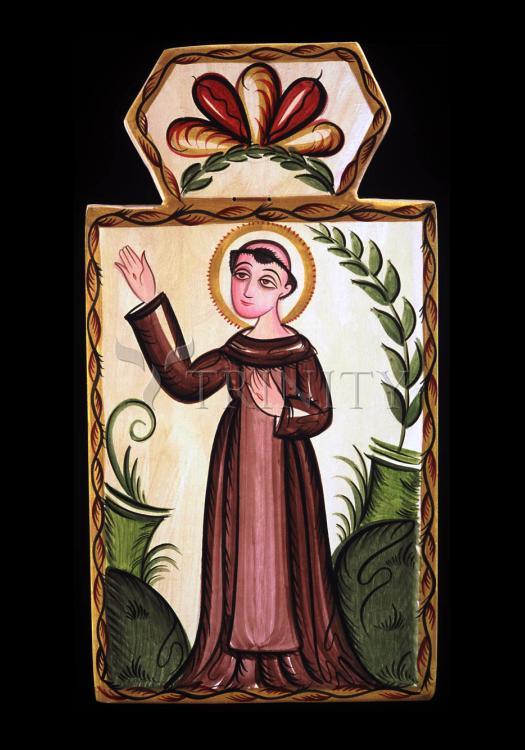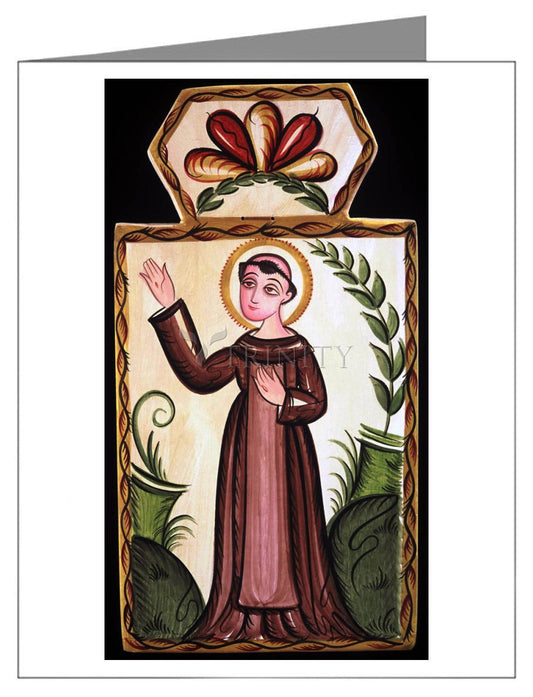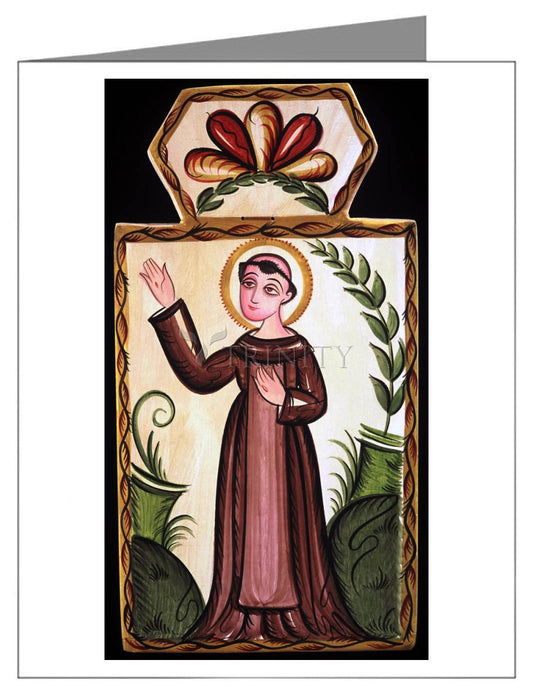Francis of Assisi was one of seven children born in late 1181 or early 1182 to Pietro and his wife Pica de Bourlemont, about whom little is known except that she was a noblewoman originally from Provence. Pietro was in France on business when Francis was born in Assisi, and Pica had him baptized as Giovanni. When his father returned to Assisi, he took to calling him Francesco ("the Frenchman"), possibly in honor of his commercial success and enthusiasm for all things French. Since the child was renamed in infancy, the change can hardly have had anything to do with his aptitude for learning French, as some have thought. As a youth, Francesco became a devotee of troubadours and was fascinated with all things Transalpine. Although many hagiographers remark about his bright clothing, rich friends, and love of pleasures, his displays of disillusionment toward the world that surrounded him came fairly early in his life, as is shown in the "story of the beggar." In this account, he was selling cloth and velvet in the marketplace on behalf of his father when a beggar came to him and asked for alms. At the conclusion of his business deal, Francis abandoned his wares and ran after the beggar. When he found him, Francis gave the man everything he had in his pockets. His friends quickly chided and mocked him for his act of charity. When he got home, his father scolded him in rage.
In 1201, he joined a military expedition against Perugia and was taken as a prisoner at Collestrada, spending a year as a captive. It is possible that his spiritual conversion was a gradual process rooted in this experience. Upon his return to Assisi in 1203, Francis returned to his carefree life. In 1204, a serious illness led him to a spiritual crisis. In 1205, Francis left for Apulia to enlist in the army of Walter III, Count of Brienne. A strange vision made him return to Assisi, deepening his ecclesiastical awakening.
According to the hagiographic legend, thereafter he began to avoid the sports and the feasts of his former companions. In response, they asked him laughingly whether he was thinking of marrying, to which he answered, "yes, a fairer bride than any of you have ever seen," meaning his "Lady Poverty". He spent much time in lonely places, asking God for enlightenment. By degrees he took to nursing lepers, the most repulsive victims in the lazar houses near Assisi. After a pilgrimage to Rome, where he joined the poor in begging at the doors of the churches, he said he had a mystical vision of Jesus Christ in the country chapel of San Damiano, just outside of Assisi, in which the Icon of Christ Crucified said to him, "Francis, Francis, go and repair My house which, as you can see, is falling into ruins." He took this to mean the ruined church in which he was presently praying, and so he sold some cloth from his father's store to assist the priest there for this purpose.
His father, Pietro, highly indignant, attempted to change his mind, first with threats and then with beatings. In the midst of legal proceedings before the Bishop of Assisi, Francis renounced his father and his patrimony, laying aside even the garments he had received from him in front of the public. For the next couple of months he lived as a beggar in the region of Assisi. Returning to the countryside around the town for two years, he embraced the life of a penitent, during which he restored several ruined chapels in the countryside around Assisi, among them the Porziuncola, the little chapel of St. Mary of the Angels just outside the town, which later became his favorite abode.
At the end of this period (on February 24, 1209, according to Jordan of Giano), Francis heard a sermon that changed his life forever. The sermon was about Matthew 10:9, in which Christ tells his followers they should go forth and proclaim that the Kingdom of Heaven was upon them, that they should take no money with them, nor even a walking stick or shoes for the road. Francis was inspired to devote himself to a life of poverty.
Clad in a rough garment, barefoot, and, after the Gospel precept, without staff or scrip, he began to preach repentance. He was soon joined by his first follower, a prominent fellow townsman, the jurist Bernardo di Quintavalle, who contributed all that he had to the work. Within a year Francis had eleven followers. Francis chose never to be ordained a priest, and the community lived as "lesser brothers," fratres minores in Latin. The brothers lived a simple life in the deserted lazar house of Rivo Torto near Assisi; but they spent much of their time wandering through the mountainous districts of Umbria, always cheerful and full of songs, yet making a deep impression upon their hearers by their earnest exhortations.
Francis' preaching to ordinary people was unusual since he had no license to do so. In 1209 he composed a simple rule for his followers ("friars"), the Regula primitiva or "Primitive Rule", which came from verses in the Bible.



